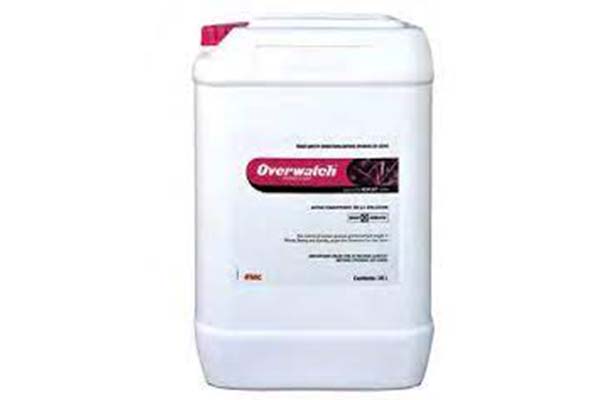Cropping 2,000 hectares by the Morony family at Ninnes, at the top of the Yorke Peninsula, South Australia, involves a rotation based on wheat, lentils and barley - and a range of tools to keep weeds under control.

Cameron Morony said wheat and lentils took up a majority of the area each season, with barley also grown in the mix.
He said lentils are good for the farm but weed control could be challenging. There was a need to maximise their herbicide options in the cereal phase, as well as using other options including a seed terminator on the header.
“We’ve got to get the weed numbers down. That's what you're trying to do,” Cameron said.
The main weed challenges on the property are ryegrass and capeweed. This is where Overwatch® Herbicide has emerged as an excellent option.
“It’s good on the annual ryegrass. Overwatch® works for up to 12 weeks, depending on seasonal conditions and soil type. It’s good on a fair range of broadleaf weeds as well,” Cameron said.
“For us, Overwatch® is not just about grass control. Historically here we’ve been hammered by bifora so we’ve needed good broadleaf packages as well as for grass control.
“Overwatch® Herbicide has a good fit because it has the potential to take away our post-emergent broadleaf spray. It’s doing two things from one drum. That’s worked really well here. We've cut back our spending on our post-em herbicides by a fair bit because of Overwatch® Herbicide and we are going out with a lot simpler brews.”
He said the ability of Overwatch® to control weeds early has taken away the pressure and reliance on the post-em sprays.
“Overwatch®’s performance on bifora and broad leaf weeds in general has been a big thing for us. We've really noticed that. So that's probably what drives our pre-em choice in wheat. It's a product that works.”
Cameron said they rotated different chemistry through the different crops with Overwatch® Herbicide generally utilised in wheat after the lentil phase.
“We use Overwatch® in our wheat and in our barley phase we use Boxer Gold*, which is a weaker option.”
He said the use of Overwatch® Herbicide in the first part of the cereal phase was important to control weeds after lentils and they were able to use alternative pre-emergent chemistry and other options, such as a Clearfield system, for post-em weed control in barley.
While most of the Overwatch® treated wheat paddocks are followed by barley, there have been occasions where lentils have been the next crop.
“We are picking up the advantages of Overwatch® Herbicide prior to the lentil phase where it seems to have brought the weed numbers down. There were wheat paddocks that were treated with Overwatch® in the year prior and we found less milk thistle and those sorts of weeds in the lentil phase.
“That was a year when it wasn’t all Overwatch®. There were a couple of paddocks that didn’t have it. The Overwatch® treated paddocks were definitely cleaner – even several years later. It does help bring the numbers down.”
Herbicides are applied through a Case Patriot sprayer with a PWM system which provides options to adjust spray volume independently of speed and pressure.
“On the Patriot we use Wilger SR110 degree 08 nozzles and run the PWM at around 2,5 bar resulting in a VC droplet. We’re confident it’s going where it is meant to go,” Cameron said.
“No one wants to be spraying in conditions where it’s going to disappear. We are spending money, so we want it on the ground. We just make sure we follow the Delta T conditions and continually monitor so the product ends up where it is supposed to go.”
This article was written by FMC for Seasons magazine.
Disclaimer - important, please read:
The information contained in this article is given for general information purposes only, current at the time of first publication, and does not constitute professional advice. The article has been independently created by a human author using some degree of creativity through consultation with various third-party sources. Third party information has been sourced from means which Elders consider to be reliable. However, Elders has not independently verified the information and cannot guarantee its accuracy. Links or references to third party sources are provided for convenience only and do not constitute endorsement of material by third parties or any associated product or service offering. While Elders has exercised reasonable care, skill and diligence in preparation of this article, many factors including environmental/seasonal factors and market conditions can impact its accuracy and currency. The information should not be relied upon under any circumstances and, to the extent permitted by law, Elders disclaim liability for any loss or damage arising out of any reliance upon the information contained in this article. If you would like to speak to someone for tailored advice specific to your circumstances relating to any of the matters referred to in this article, please contact Elders.
